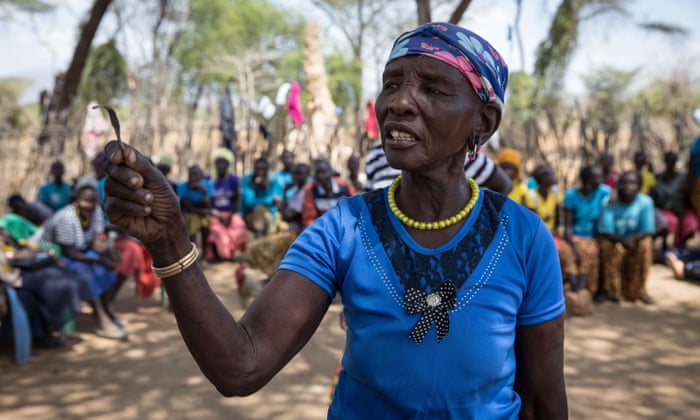As Uganda joins the rest of the world to commemorate the International day for zero tolerance to Female Genital Mutilation (FGM), the European Union (EU) delegation to Uganda has urged government enforce the law to fight the bad practice imposed on women in Sebei sub region.
In 2010, Uganda enacted an anti-FGM law under which culprits could be jailed for four to five years once found guilty.
“The European Union Delegation to Uganda would like to reiterate the importance of systematically implementing specific legislation by the Government of the Republic of Uganda which outlaws the harmful practice. In 2010, Uganda enacted The Prohibition of Female Genital Mutilation Act, which criminalises FGM,”
The European Union Delegation to Uganda is shocked by the recent events in Kween and Bukwo districts where a number of girls became victims of FGM. Today, we reiterate the European Union’s firm commitment to support the Government of Uganda and all other actors, both state and non-state, in their efforts to eliminate this harmful practice, said Ambassador Attilio Pacifici.
He said FGM is a fundamental violation of basic human rights and of the dignity of women and girls; it is cruel, inhuman and degrading, and has severe negative consequences in terms of physical and psychological health for FGM survivors for the rest of their lives.
He said EU recognises the challenges the Government of Uganda and other actors face in their strive towards curbing the practice, and support the efforts of all stakeholders to ensure the elimination of FGM. “The European Union’s strong commitment to eradicate worldwide FGM is affirmed in a joint statement here,” he said.
On Monday three UN agencies in Uganda said the practice has drastically gone down in the East African Country.
Evidence shows that over 95 per cent of the communities where FGM was formerly practiced do not support the practice anymore.
The World Health Organisation , the United Nations Children’s Fund and the United Nations Population Fund made the disclosure in a joint statement.
The agencies said that over 200 communities had since 2009 publicly declared abandonment of the practice in Sebei and Karamoja regions, in the eastern part of the country.
“Currently, we see even more diverse community activity the media are fully engaged, the church is strongly outspoken.
“The cultural leaders have come out to denounce the practice, girls and young women are stepping out and saying ‘no’ to FGM,’’ the statement said.
“For several years now, most of the practicing communities of FGM in Uganda have realised that there are absolutely no benefits associated with FGM, but rather far-reaching harmful consequences for the women and girls who are cut,’’ the statement added.
Health experts say FGM, which is seen as a rite of passage into womanhood, is a big threat to women and girls’ rights, including reproductive health, causing prolonged bleeding, infections, and sometimes formation of cysts.
The agencies said recent reports of women and girls in Kween district, eastern Uganda, being forcefully subjected to FGM is a big concern.
Clearly, if women and girls have to be forced against their will to undergo what is presumably a cultural tradition, then something is terribly wrong, they said.
“We are specifically reaching out to the government of Uganda and other stakeholders to see how we can join hands to support girls and women who are now living in fear,’’ the statement said.
“The recent upsurge should not derail efforts to eliminate FGM. Discontinuing the practice is a long and complex process because it requires a total change in behaviour and negative social norms.’’




